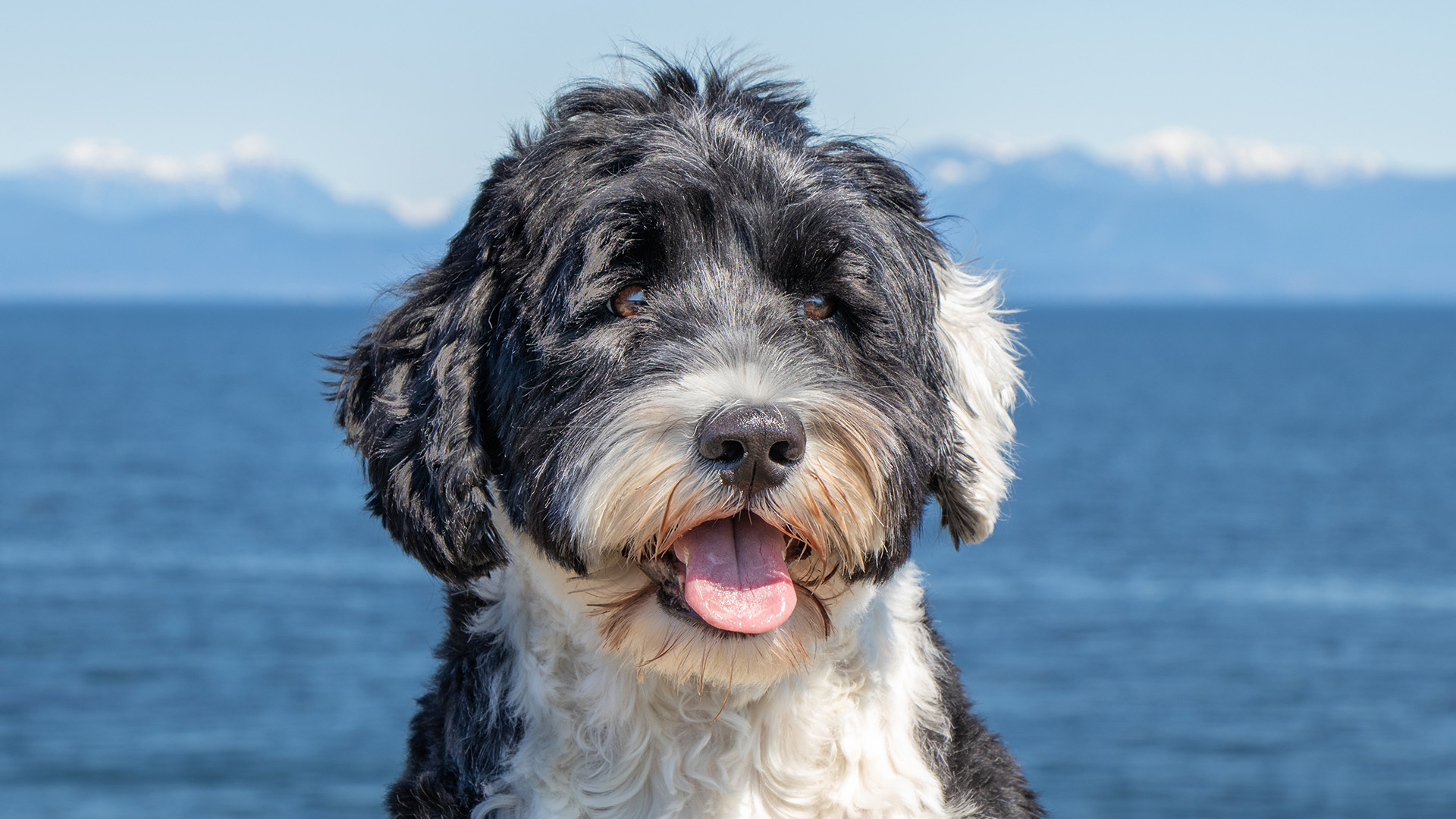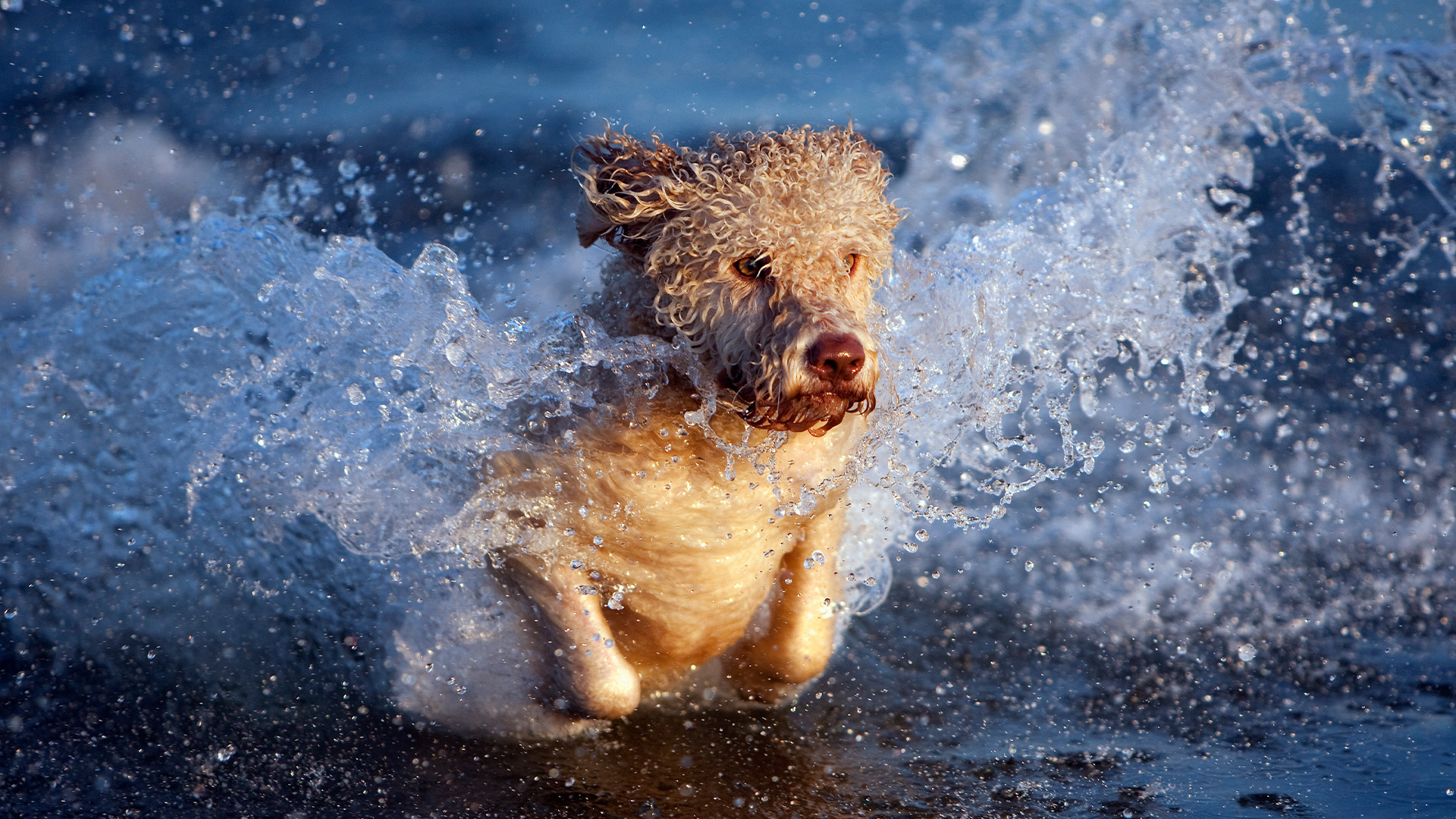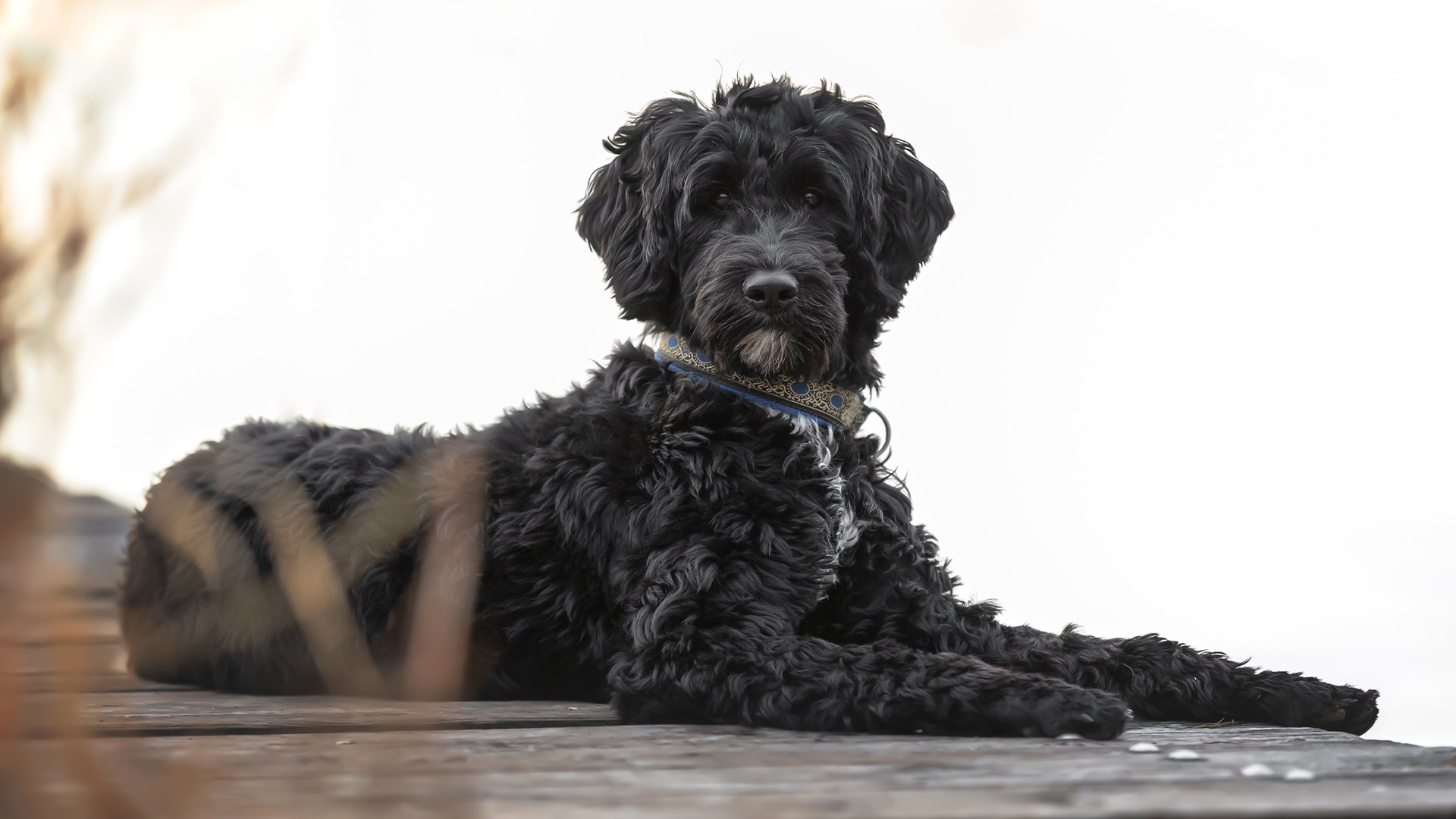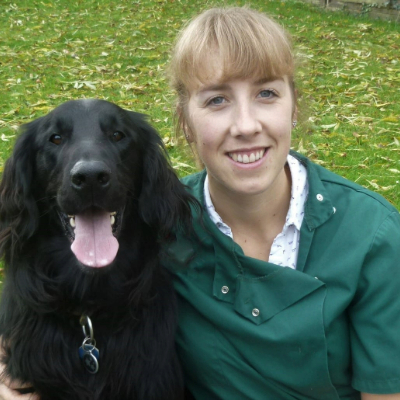Portuguese Water dogs are bouncy, fun and love to swim but are they the perfect breed for you?
We take a closer look at a dog which has proven to be very popular in the United States


Life expectancy: 12–15 years
Size: 20–23 inches (male); 17–21-inches (female)
Coat: Curvy or wavy single coats
Temperament: Intelligent, obedient, brave
Exercise needs: Around one to two hours
Origin/native country: Portugal
Bred to assist fishermen, Portuguese Water dogs quickly proved super-helpful when herding fish into nets. Capable of retrieving fish, nets and tackle and with a great desire to work, this breed has also proven useful for fetching waterfowl on hunts. But that means they will also make for a great pet?
President Barack Obama owned a Portuguese Water dog, Bo, who proved to be one of the most loved presidential dogs, so this is surely a good sign.
But to answer that question in more detail, we enlisted the assistance of expert vet Dr Rebecca MacMillan and assessed how much time and effort you will need to put into training and exercising this breed in a domestic setting. We also looked at whether or not this breed gets on well with families and the extent to which you’ll need to take care of their coat.
Do Portuguese Water dogs need a lot of exercise?
Portuguese Water dogs will definitely suit an adventurous owner because, quite aside from being among the most playful dog breeds, they’re one of the best outdoor dogs. Thing is, are you going to be able to keep pace with them and do you have the time?
“These are active dogs that need between one and two hours of good physical activity each day depending on their age and health status,” says Dr MacMillan. “This can include walking, running, and… swimming!”
As the name suggests, this is a dog breed that adores water and if they see a lake or a river, then they’ll almost plead to be allowed to splash about.
“The Portuguese Water dog is designed for water and most of them are natural swimmers,” Dr MacMillan says.
Get the best advice, tips and top tech for your beloved Pets
“They were originally bred by fishermen to go in the water and help bring in fishing nets and other bits of equipment. Their body is perfectly designed for this with a strong rudder-like tail, webbed feet, and a muscular build. Their coat is single-layered and said to be resistant to holding water, meaning that they can maintain buoyancy with ease.”
If you don’t fancy taking the plunge with them, don’t worry. You’ll have as much fun with this breed on dry land given it’s one of the best dogs for hiking. They can keep going for as many as 10 miles and they’ll keep pace if you decide to go for a jog too. And since they have a low prey drive, you won’t necessarily need to worry about them suddenly darting away to chase after a small animal.
Are Portuguese Water dogs easy to train?
Portuguese Water dogs are eager to please and therefore very trainable.
“They’re highly intelligent, which can make training straightforward,” Dr MacMillan says.
This breed is also super adaptable so long as it gets sufficient exercise each day. The main thing to watch out for is the breed’s tendency to think independently which can pose a challenge from time to time but early training using positive reinforcement techniques can help enormously.
“It’s important to provide plenty of mental stimulation for this clever breed, through training sessions and other activities, to keep boredom at bay,” Dr MacMillan affirms. Give them jobs to do, teach them some tricks and engage them in playful activities to keep them happy.
Do Portuguese Water dogs make good family pets?
One of the world’s most famous families – that of former US President Barak Obama – welcomed two Portuguese Water dogs into their home and they lived alongside Obama’s children with no reported issues at all.
With this breed, however, pretty much everything comes down to sufficiently burning off their excess energy and ensuring their mind is kept ticking over.
“The Portuguese Water dog can make a brilliant family dog provided they are receiving enough exercise and mental stimulation,” Dr MacMillan says. “A bored or under-exercised dog is more likely to have behavioural and training issues.:
With the right approach and care, you’ll find this breed is affectionate, gentle and self-controlled.
“These dogs are loving, gentle and good with children, if they have been appropriately socialised,” Dr MacMillan adds. They will, however, rub along better if the household enjoys exercising.

Do Portuguese Water dogs need a lot of grooming?
The good news is that Portuguese Water dogs are a hypoallergenic dog breed and that’s because they have single-coats that hardly shed. The bad news is that you still have to tend to them and grooming can be extensive to prevent mats and tangles from occurring.
“Portuguese Water dogs can have a curly coat or a wavy coat and there are two main styles that they are classically kept in,” Dr MacMillan says. “They can have the retriever cut where the coat is trimmed to a single length all over, or they can have the lion cut where the fur is long at the front of the body and shaved short at the back. Either way, this will mean regular trips to the groomer!”
To make life easier, you should opt for the retriever clip.
“It’s easier to manage at home with brushing just a couple of times a week, whereas the lion clip will need daily brushing to keep it in good condition,” says Dr MacMillan. Other than that, bath this breed occasionally and take care of their teeth and nails.
Wisdom Panel Breed Discovery DNA Kit | Amazon
Not sure exactly what breed your dog is? This kit screens for 365+ breeds – because knowing every detail about your dog helps you understand how best to care for them.
Common health problems in Portuguese Water dogs
Portuguese Water dogs are prone to the same conditions that plague many pedigree dogs. This includes both elbow and hip dysplasia.
“These inherited developmental joint issues can cause pain, mobility issues, and the early onset of arthritis in affected dogs,” Dr MacMillan says.
These dogs also suffer from inherited eye disorders such as progressive retinal atrophy (PRA) and cataracts. And they are prone to another genetic condition called GM1 Gangliosidosis.
“It causes an alteration in cell metabolism which can lead to severe neurological issues,” Dr MacMillan says. “Unfortunately, there is no treatment, and euthanasia is advised in affected puppies with a deteriorating quality of life. Purchasing your puppy from a reputable breeder who has performed screens for these conditions is essential.”
As if that wasn’t enough, this breed also seems very prone to Addison’s disease, which is a hormonal issue where the body doesn’t produce enough cortisol or aldosterone.
“Without these hormones, many processes in the body can start to go wrong,” Dr MacMillan says. “Symptoms include lethargy, vomiting, diarrhea, weight loss, collapse, and even death.”
Should I get a Portuguese Water dog?
Much depends on your own lifestyle. If you love being outdoors or if you have a family that is very active, then this breed will suit you down to the ground (or lake!).
If you suffer from allergies and want a dog that won’t leave hairs all over your home, again, this is the breed for you. But it’s no lapdog and while this breed is capable of relaxing, you’ll find they tend to be best for people who have the time to play and go on adventures.
The Complete Guide To Portuguese Water Dogs | Amazon
With interviews from eight top Portuguese Water dog breeders, this book creates an in-depth look at what it really takes to successfully live with, raise, and care for a Portuguese Water Dog.
Read next: 32 facts about Portuguese Water dogs

Rebecca is a veterinary surgeon who graduated in 2009 from the Royal Veterinary College in London. She has a wealth of experience in first opinion small animal practice, having done a mixture of day-to-day routine work, on-call emergency duties and managerial roles over the years. Rebecca enjoys medicine in particular and she is proud to have recently achieved a BSAVA postgraduate certificate in small animal medicine (with commendation).
She writes on various feline and canine topics, including behavior, nutrition, and health. Outside of work and writing she enjoys walking her own dog, spending time with her young family and baking!
Edited by Georgia Guerin.
This feature was last updated on May 7, 2025.

David Crookes has been a journalist for almost 30 years and he has written for a host of magazines, newspapers, websites and books including the World of Animals Annual, BBC Earth, Live Science, The Independent and Tom’s Guide.
Born in England, he lives with two cats but he’s also keenly interested in the differences between the huge number of dog breeds – in fact, you can read many of his breed guides that he’s written in collaboration with vets here on PetsRadar.
With a lifelong passion for technology, too, he’s always on the lookout for useful devices that will allow people to keep their pets happier and healthier, and provide them more time to spend together.
David has a degree from Durham University, as well as postgraduate diploma in journalism from the University of Central Lancashire.


